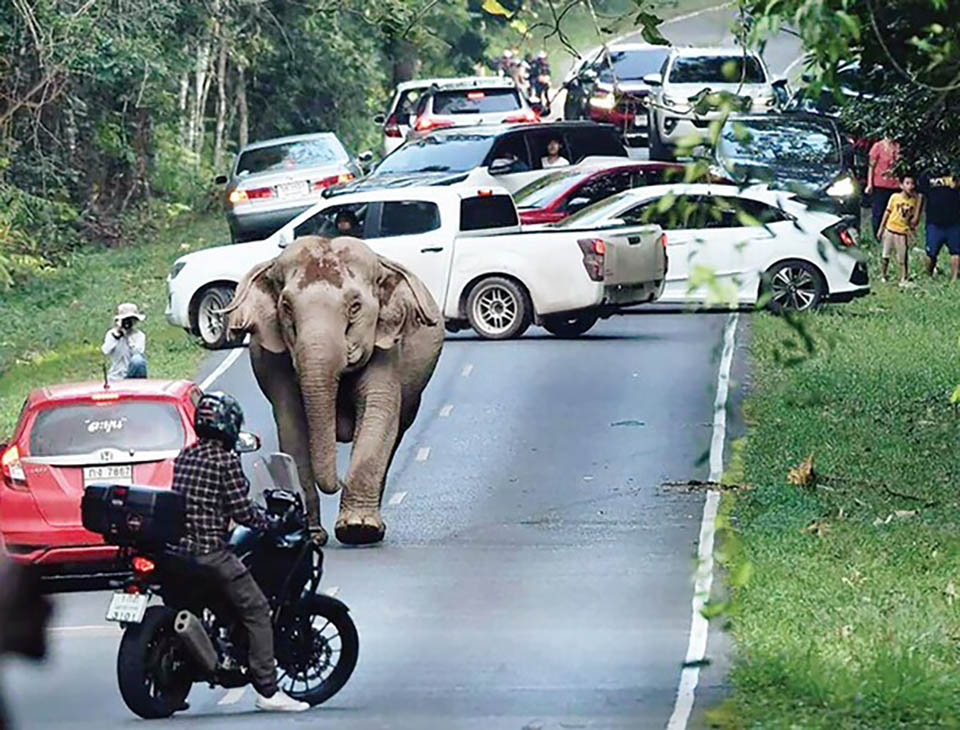
BANGKOK, Thailand – The Department of National Parks, Wildlife, and Plant Conservation has announced plans to implement wild elephant contraception program to address escalating human-elephant conflicts, December 30. The initiative aims to prevent loss of life and property among the public while protecting elephants from harm when they stray out of forested areas. The program will use long-acting contraceptive vaccines, which have been successfully applied in Africa, offering seven years of effectiveness per dose with no side effects.
In a statement issued today, the department emphasized the necessity of the program, citing over three decades of continuous human-elephant conflicts across 42 provinces. Between 2012 and the present, wild elephants have caused 240 human fatalities, 208 injuries, and significant damage to crops and property. Recognizing the severity of the issue, the government established the “Wild Elephant Conservation and Management Committee” in 2022, chaired by the Prime Minister, to integrate efforts among agencies to resolve these conflicts sustainably.
The committee approved a six-point framework to address the issue systematically and holistically:
1.Management of forest reserves to serve as elephant habitats.
2.Establishment of barriers to prevent elephants from leaving forests.
3.Deployment of monitoring teams and community networks to guide elephants back to their habitats.
4.Assistance for those impacted by wild elephant activity.
5.Development of sustainable habitats for elephants.
6.Population control through contraceptive vaccines.
The proposed vaccine, SpayVac®, was tested on seven female elephants in April 2024 in collaboration with Chiang Mai University’s Faculty of Veterinary Medicine. Initial trials revealed no side effects, behavioral changes, or adverse health impacts. The vaccine prevents reproduction by inhibiting hormone activity without affecting pregnant elephants or social dynamics within elephant herds.
The pilot program will be expanded to areas where elephant populations have exceeded the carrying capacity of forest reserves, such as the Eastern Forest Complex spanning five provinces. This region has seen the country’s highest elephant population growth and most severe human-elephant conflicts.
The department affirmed that the initiative is based on rigorous scientific research and veterinary practices. Efforts include population studies, identification of individual elephants, monitoring using tracking technology, and evaluation of the program’s success. The project is designed not only to balance elephant populations with available habitats but also to foster public and stakeholder participation in long-term conservation and sustainable management efforts.
This contraception program represents a significant step in mitigating human-elephant conflicts while promoting the coexistence and preservation of Thailand’s wild elephant population. (TNA)










